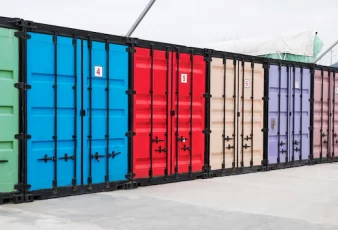In Singapore, due to a lack of space, the commercial property market is always hot. From an investment perspective, it is wise to own a property in Singapore. However, the question is, “Whether you are going to buy it individually or are going to opt for company incorporation in Singapore to do so?
Incorporate a Singapore Company & Streamline Your Property Trade:
Here, investors generally follow one of the two ways to buy commercial properties:
- You can either purchase commercial real estate in your name; or
- Set up a private limited company and purchase the property in the company’s name
As a matter of fact, it is more beneficial to use a corporate entity to hold a commercial estate. It is what experts advise. Let us know the key benefits of using a company to purchase a commercial property.
Singapore Levies No Capital Gains Tax
Normally, Singapore does not make tax income from the sale of a property. It is a capital gain. However, every rule has an exception. In this case, an individual deemed to be trading in properties has to pay tax on the income from such a sale.
Authorities consider:
- How frequently you buy and sell properties
- Your reasons for purchase and sale of property
- Your financial capability to hold your purchases for long term
- The holding period for the properties
Lower Corporate Tax Rates
Singapore’s personal tax ranges from 0%-22%, which is higher than the corporate tax (0%-17%). A company pays less tax than an individual.
Companies Get More Tax Relief
You, as an individual property trader, can claim only a few indirect expenses under personal tax law. A Singapore company that trades in properties can claim way more direct and indirect expenses. A higher number of tax exemptions means dealing in properties is more beneficial to a company.
Cheaper Funding
Singapore companies are more credible in the eyes of financial institutions and investors. They get easy access to external finance to buy a commercial property. They also have to pay lower tax rates. The interest rates for personal borrowing are usually higher than those for corporate.
Transfer of Ownership
A holding company can easily transfer the ownership of their commercial property to an individual trying to sell a commercial property.
Singapore Holding Companies Get Tax Exemptions and Rebates
Partial Tax Exemption
A holding company in Singapore get partial tax exemption. YA 2020 onward, they can claim:
- 75% tax exemption on their first $10,000 of normal chargeable income; and
- 50% tax exemption on the next $190,000 of normal chargeable income
These companies cannot claim tax exemption under the scheme for new start-up companies.
Corporate Income Tax Rebate
Singapore holding companies get a rebate on corporate income tax. For the YA 2020, it is set at 25% corporate income tax. The amount is capped at $15,000.
Goods & Services Tax (GST)
The buyer has to pay GST on the purchase, sale, and lease of commercial real estate. Individual owners have to pay it out of their pocket.
If the buyer is a corporation registered for GST, it can claim back the GST amount paid.
Limited Liability for Shareholder
In a private limited company registered in Singapore, the shareholders are liable for the amount they have invested in its equity. They stand to lose the amount if the company fails. It is why this business structure is popular.
In the case of an individual owner, their liability is unlimited. If they lose money on a property deal, they can put their personal assets at risk.
Stamp Duty
Stamp duty is a tax on documents relating to immovable properties, stocks, or shares transfer documents.
The shareholders indirectly own the commercial properties owned by the company. When they can sell their shares to other shareholders or to a third party, they also sell their share in the property. They have to pay stamp fees of 0.2 percent payable on the value of the shares.
A group of individuals can also hold commercial property without forming a company. When one of them wants to sell his or her share in the property, he or she has to pay a stamp duty of almost 3 percent.
Sellers have to pay the Seller’s Stamp Duty on the sale of industrial properties. They have to pay 15% on the sale price of the property sold in the first year. It is 10% for the 2nd year and 5% for the 3rd year.
A Singapore Company can Carry Forward Its Losses
If a Singapore company suffers losses because of the commercial property it holds, it is allowed to carry forward the trade losses to subsequent years until they are fully utilized.
If you want to trade in properties, your best bet is to opt for company incorporation in Singapore. Liability-wise it is a safer option. SBS Consulting is a provider of company incorporation services in Singapore. If you have any queries, contact us on +65-6536 0036 or email us at [email protected] for answers.
Read Also:




























